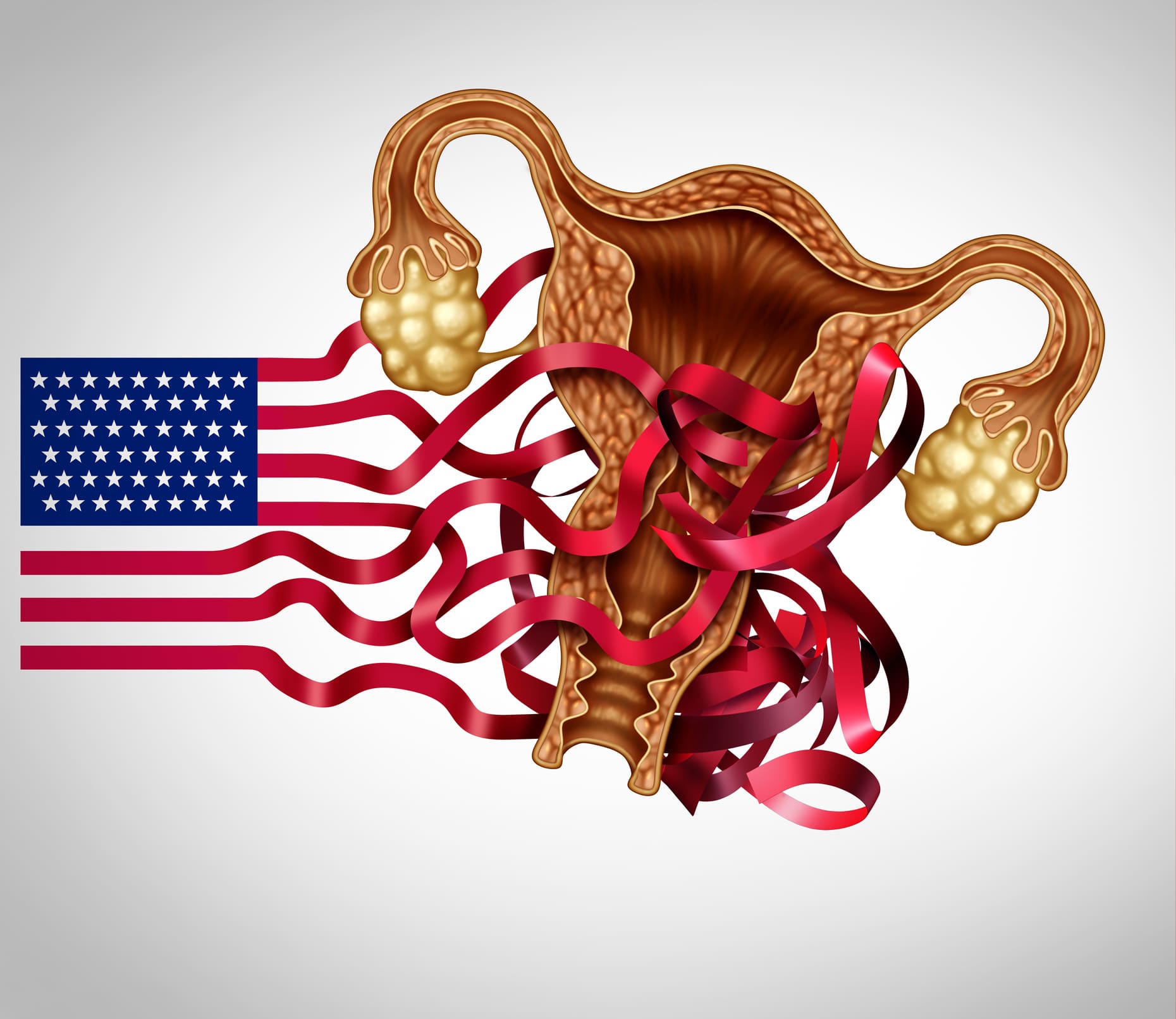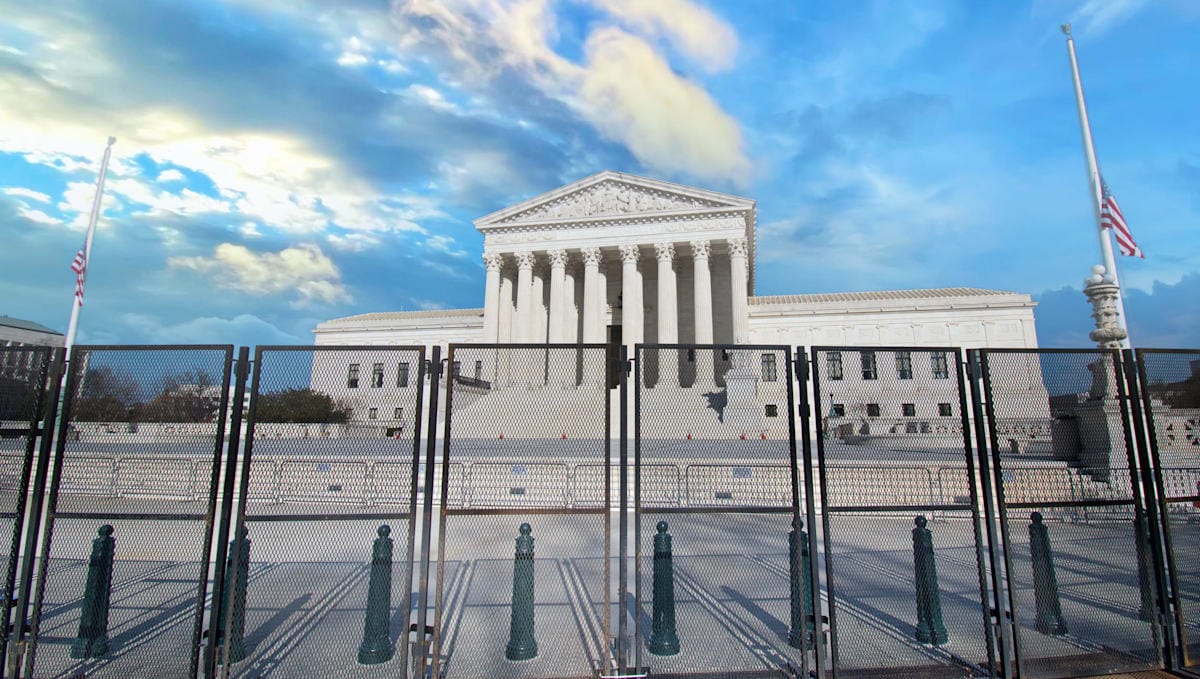
In May this year, I wrote a piece for Monash Lens following the leaking from the United States Supreme Court (SCOTUS) of a draft judgment overturning the 1973 decision of Roe v Wade.
This is the seminal decision that provided constitutional protection to the right to abortion.
The final decision of Dobbs v Jackson Women’s Health has now been handed down and, staying largely true to the leaked draft judgment, it’s devastating for reproductive rights, and a dangerous precedent for the potential overturning of other rights, such as the right to gay marriage.
The court decided 6-3 to uphold the Mississippi law that bans abortion after 15 weeks’ gestation, and 5-4 to overturn Roe v Wade and Casey v Planned Parenthood, the 1992 SCOTUS decision that affirmed Roe v Wade.
In doing so, SCOTUS ruled that there’s no federal constitutional right to abortion. It’s now up to the states to regulate abortion as they see fit.
Abortion regulation a matter for the states
Some states will retain permissive legislation. Others will completely ban abortion. The story of abortion in the US will become a tale of two countries. Many states, particularly in the south or midwest will ban or severely restrict abortion access.
In fact, prior to this decision being handed down, a number of states passed so-called “trigger laws” that became enlivened as soon as the court’s judgment was handed down.
For example, Oklahoma law now bans abortion (beginning at fertilisation) in nearly all circumstances. The consequences of such an extreme ban are potentially far-reaching. Not only do they directly affect the ability of women to terminate a pregnancy, but they’ll most certainly have an impact on treatment for miscarriage, and potentially on fertility treatment as well.
Read more: In Roe v Wade’s shadow, there’s an urgent need to tackle abortion stigma in Australia
Many doctors, afraid of prosecution, will stop treating women for miscarriage and even ectopic pregnancy, posing serious risks to the health and lives of those in need of care.
It’s already been reported that fertility clinics in conservative states are moving embryos across to more liberal states out of fear for the impact of this ruling on IVF.
The impact of such restrictive abortion laws will be felt most acutely by those who are already vulnerable, such as those who for financial or other reasons cannot travel to a more liberal state.
According to the Center for Reproductive Rights:
“The impacts of these bans will fall particularly hard on people who already face discriminatory obstacles when accessing healthcare, in particular people of colour, those having difficulty making ends meet, members of the LGBTQ+ community, young people, people in rural communities, and undocumented people.”
It’s a devastating blow for reproductive rights, women’s rights, and human rights more broadly.
A number of more liberal states, such as California, have responded to the court’s decision by passing legislation bolstering the protection of existing abortion rights, as well as making the state a refuge for women seeking abortions, providing protection for those who travel to California from other states to access abortion services.
The Governor of California, Gavin Newsom, recently tweeted: “Abortion is legal in California. It will remain that way. I just signed a bill that makes our state a safe haven for women across the nation. We will not cooperate with any states that attempt to prosecute women or doctors for receiving or providing reproductive care.”
Abortion is legal in California.
It will remain that way.
I just signed a bill that makes our state a safe haven for women across the nation.
We will not cooperate with any states that attempt to prosecute women or doctors for receiving or providing reproductive care.— Gavin Newsom (@GavinNewsom) June 24, 2022
It’s mind-blowing that this is occurring in the US, in 2022. And as laudable as these actions are, the reality is that only women able to travel to California will receive the benefit.
The consequences of the court’s decision are that in the year 2022, many women in the US will be forced to either carry pregnancies to term, or will turn to access abortion outside of the healthcare system.
This is a terrifying prospect.

Abortion is a human rights issue
As I stated in my May piece for Monash Lens, abortion is a human rights issue. It should not be recast as a states’ rights issue. Not when we know that restrictions on abortion may seriously impact the fundamental rights of those seeking abortion, such as their:
- right to life
- right to health
- right to privacy/autonomy
- right to equality/freedom from discrimination
- right to be free from torture, or cruel, inhuman or degrading treatment or punishment.
This wholesale overturning of Roe v Wade has landed a devastating blow on the rights of women across the US, and renders the US an outlier in a global context where the trend is towards liberalisation of abortion regulation.
In the words of the dissenting justices in Dobbs (Sotomayor, Kagan and Breyer), “from the very moment of fertilisation, a woman has no rights to speak of. A state can force her to bring a pregnancy to term even at the steepest personal and familial costs.”
There may be more to come
This decision represents an astonishing step backwards for the protection of fundamental human rights. Whereas right now it’s the right to abortion that’s been decimated, the logic of the court’s decision could equally apply to other unwritten rights derived from the 14th Amendment of the United States Constitution, such as the right to contraception or the right to gay marriage.
This decision has potentially far-reaching consequences for the human rights of all who live in the US, and possibly beyond.





